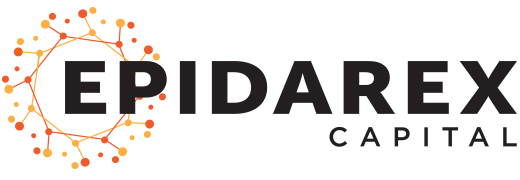Louisville, KY, June 29, 2017 – Apellis Pharmaceuticals, Inc. today provided an update on clinical outcomes in its two ongoing Phase 1b clinical trials with APL-2, a complement C3 inhibitor, in the treatment of patients with paroxysmal nocturnal hemoglobinuria (PNH). PNH is a rare, acquired, potentially life-threatening disease characterized by complement-mediated hemolytic anemia. Apellis is developing APL-2 as a next generation monotherapy, with the goal of resolving anemia and transfusion dependency in PNH patients on standard of care.
APL-2 is being developed for newly diagnosed PNH patients as well as for patients who suffer from anemia while receiving standard of care intravenous infusions of eculizumab. Eculizumab is a complement C5 inhibitor that improves anemia in patients with PNH, but leaves up to 75% of PNH patients anemic and 35-40% transfusion-dependent.
APL-2 is being evaluated in two Phase 1b clinical trials.
PADDOCK is an open label safety and efficacy study of 270mg of APL-2 administered daily by subcutaneous injection to PNH patients (n=3) who have never received eculizumab. In PADDOCK, in the first month, all three patients treated with APL-2 monotherapy experienced rapid corrections in lactate dehydrogenase (LDH), a key marker of hemolytic activity in PNH, from an average of 1,615 U/L to an average of 275 U/L (1.1x upper limit of normal), a decline of 83%.
PHAROAH is an open label safety and efficacy study of 270mg of APL-2 administered daily by subcutaneous injection as a complementary therapy to suboptimal responders to eculizumab (n=6), defined as hemoglobin levels (Hb) of less than 10 g/dL at screening or a history of at least one transfusion in the previous year. In the first month, average Hb levels in the six patients increased from 8.8 g/dL to 11.9 g/dL, an increase of 36%. During this period, patients also experienced rapid corrections in LDH from an average of 280 U/L (1.3x upper limit of normal) to an average of 163 U/L (0.8x upper limit of normal), a decline of 42%. After six months, the average Hb level was 11.4 g/dL, and the average LDH level continued to be normal at 184 U/L (0.9x upper limit of normal). During that same period, the average transfusion rate dropped from 3.4/month on eculizumab monotherapy to 0.3/month when APL-2 was added to eculizumab. Notably, five of six patients on baseline were receiving higher than normal dosing with eculizumab in the form of 1,200 mg every two weeks or 900 mg every week, as opposed to the normal 900 mg every two weeks.
There have been no significant drug-related safety concerns and overall APL-2 was well tolerated in both PADDOCK and PHAROAH during the six months of dosing. None of the patients experienced episodes of breakthrough hemolysis, which can occur in patients treated with C5 inhibitors. Both open label studies are ongoing and are designed to support cross-over from eculizumab to APL-2 after a brief period of add-on dosing. Later in 2017, the Company plans to switch from daily to twice per week dosing.
Cedric Francois, M.D., Ph.D., chief executive officer of Apellis, said: “We are very encouraged by the robust hemoglobin improvements and LDH corrections observed in PNH patients treated with APL-2, which we are developing as a monotherapy alternative to eculizumab and other C5 inhibitors. We believe that C3-inhibitor APL-2 can be the next generation PNH treatment offering patients a powerful solution to meaningfully improve their quality of life.”
Dr. Peter Hillmen, Professor of Experimental Haematology, University of Leeds, Leeds, UK, added: “The initial results from the APL-2 studies are encouraging in terms of both safety and effectiveness. The unique mode of action of APL-2 promises to improve the treatment for patients with PNH who have a sub-optimal response to eculizumab.”
Phase 3 initiation is planned for Q4/2017.
About Paroxysmal Nocturnal Hemoglobinuria
Paroxysmal nocturnal hemoglobinuria (PNH) is a rare, acquired, potentially life-threatening disease characterized by complement-mediated hemolysis with or without hemoglobinuria, an increased susceptibility to thrombotic episodes and/or some degree of bone marrow dysfunction. A significant subset of patients treated with the current standard of care still suffer from debilitating anemia and transfusion dependence.
About APL-2
APL-2 is a synthetic cyclic peptide conjugated to a polyethylene glycol (PEG) polymer that binds specifically to C3 and C3b, effectively blocking all three pathways of complement activation (classical, lectin, and alternative) with a particularly high potency against the alternative pathway. This comprehensive inhibition of complement-mediated pathology may have the potential to control symptoms and modify underlying disease in patients suffering from PNH.
About Apellis
Apellis is a clinical-stage biopharmaceutical company focused on the development of a platform of novel therapeutic compounds for the treatment of a broad range of autoimmune diseases based upon complement immunotherapy. Uncontrolled complement activation can lead to a wide range of lifethreatening or debilitating disorders. Apellis is the first company to advance chronic therapy with a C3 inhibitor into clinical trials. Apellis is currently evaluating its lead product candidates in Phase 1 clinical trials in paroxysmal nocturnal hemoglobinuria (PNH) and in a Phase 2 clinical trial in geographic atrophy, the advanced form of dry age-related macular degeneration (AMD). For additional information about Apellis, please visit www.apellis.com.
###
Click here to download the original press release.
